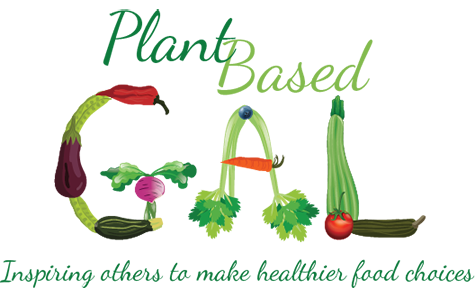What is Vitamin B12, why do we need it, and where does it come from? Let’s take a look at this important vitamin to find out ways to get it when you eat a plant-based diet.
WHAT IS VITAMIN B12?
Vitamin B12 (also known as cobalamin) is one of the eight essential nutrients that help the body create red blood cells to keep us from becoming anemic, helps to maintain healthy nerves and normal brain function, and along with folate is crucial in producing our DNA.
WHERE DOES VITAMIN B12 COME FROM?
This vitamin is produced by bacteria in the large intestine. But, because it isn’t produced until late in the digestive process, it is not available for absorption at the proper time. Therefore, we must get it from our food in order for absorption to occur. Vitamin B12 is found in a variety of animal products (beef liver, fish, poultry, eggs), because this type of bacteria is common in the guts of animals. You may be asking yourself how vegetarian/herbivore animals get enough Vitamin B12 themselves? Theories show it is because animals eat their own poop, they have bacterial contamination in their food, and they absorb B12 made by their gut bacteria. Eating feces allows them to acquire Vitamin B12 even though they eat a plant diet. [1] Aren’t you glad you asked? 😲
Since people who eat a plant-based diet don’t eat animal products, their diet cannot supply this vitamin unless the food is supplemented.
HOW MUCH DO WE NEED?
According to the National Institutes of Health, the recommended mcg[2] varies at different ages. This chart shows the average daily recommended amount of Vitamin B12 required at various life stages.
WHAT ARE SYMPTOMS OF VITAMIN B12 DEFICIENCY?
Becoming deficient in Vitamin B12 isn’t a good idea. Some of the symptoms are:
- loss of energy
- tingling
- numbness
- dizziness and light-headedness
- anemia
- constipation
- poor memory
- blurred vision
- personality changes
Thankfully, the symptoms of deficiency develop gradually and can usually be reversed with B12 supplements.
HOW CAN WE GET VITAMIN B12 BY EATING PLANTS?
First, look for plant-based foods which have been supplemented with Vitamin B12. The availability of fortified foods varies, so be sure to read labels to see if there is enough of this vitamin in the food. Some items you can find with added Vitamin B12 are: fortified cereals, nutritional yeast (nooch), and soy or other non-dairy milk. You can also get some B12 from seaweed and certain mushrooms.

(click for larger view)
VITAMIN B12 SUPPLEMENTS
The human body efficiently stores and uses this vitamin for 3-8 years, so until you have been eating a plant-based diet for several years you will be okay. If you plan to live this lifestyle and never consume meat, then you should eat foods that have been fortified with Vitamin B12 and take a supplement. Dr. John McDougall recommends that people who eat an exclusively plant-based/vegan diet take a Vitamin B12 supplement equal to 5 mcg[3] per day. Vegetarians who do not consume enough dairy products or eggs to get their daily dosage should also take supplements.
You can take a daily supplement or do as my husband I have done for many years and use a weekly sublingual (dissolved under the tongue) Vegan Methylcobalamin (a cobalamin form of vitamin B12) tablet to get the recommended dosage. When we have our annual blood work tested, we always have the doctor check our B12 levels and by taking this weekly supplement, our levels have been right where they should be.

The Vitamin B12 Take-Away
Vitamin B12 is essential – nobody can live without it. You can easily get this vitamin by eating animal products, but is that the best choice? You might want to weigh the health benefits of eating a plant-based diet and taking a Vitamin B12 supplement with the negatives of eating animal products. Thus, you can make an educated decision for you and your family. Most importantly, you need to be sure you are getting enough of this crucial vitamin. Also, make sure your doctor is aware that you eat a plant-based diet and are taking this supplement so they can test your B12 levels each year.
[1] Herbert V. Vitamin B-12: plant sources, requirements, and assay. Am J Clin Nutr 1988;48:852-8.
[2] Pronunciation MY-kroh-GRAM
Definition: µg or mcg. A unit of weight in the metric system equal to one millionth of a gram. (A gram is approximately one-thirtieth of an ounce.)
[3] https://www.drmcdougall.com/misc/2017nl/apr/b12.htm
For more detailed reading on Intestinal Bacteria as a Vitamin B12 source, visit: https://veganhealth.org/intestinal-bacteria-as-b12-source/#fn1




Pingback: Calcium on a Plant-Based Diet - Plant Based Gal